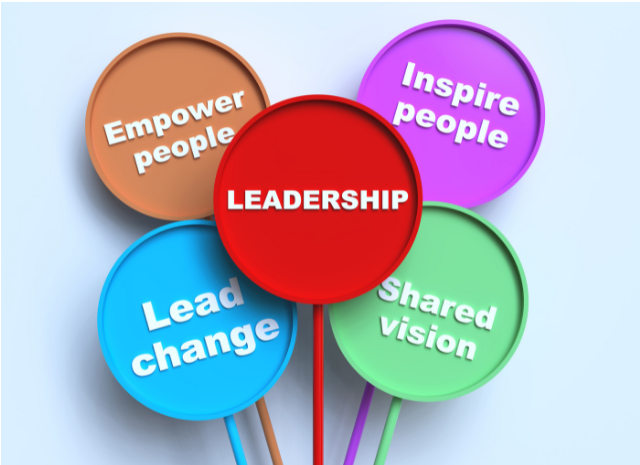Professional Development
NAA publishes fresh, new content every week covering a wide variety of topics related to the field of aftershool. In addition, NAA offers a variety of opportunities for virtual professional development (PD) through meaningful content, conversations and connections. Click here to see full descriptions of virtual PD offerings.
5 Ways Leaders Can Intentionally Develop EQ
Wednesday, 13 October 2021 00:00To be effective, leaders must understand and develop their own social and emotional competencies or emotional intelligence (EQ). Jimena Quiroga Hopkins from Thrive Paradigm posits EQ is critical for leaders because of they influence the overall work environment and the professional development of others.
What is EQ and why is it so critical for leaders?
EQ is the capability of individuals to recognize their emotions and those of others, discern between different feelings and label them appropriately, use this information to guide thinking and behavior, and manage or adjust emotions to adapt to environments or achieve one's goals.
According to Quiroga Hopkins—who often cites Daniel Goleman's book, Emotional Intelligence—“Many of us understand the importance of social-emotional learning (SEL) and supporting young people in developing their emotional intelligence. As we're doing that, it only makes sense that we also work on our emotional intelligence as adults and leaders, which is a lifelong process.
5 Elements of Emotional Intelligence
What are they and what do they mean in terms of the work done in the afterschool space?
Self-Awareness: Recognizing and labeling one's feelings and accurately assessing one's strengths and limitations.
Self-Management: Regulating emotions, delaying gratifications, managing stress, motivating oneself, setting and working toward achieving goals.
Social Awareness: Showing empathy, taking others' perspectives, and recognizing and mobilizing diverse and available supports.
Motivation: Personal drive to improve and achieve, commitment to goals, initiative, or readiness to act on opportunities, optimism, and resilience.
Relationship Skills: Clear communication, accurate listening, cooperation, nonviolent and constructive conflict resolution, and knowing when and how to be a good team player and leader.
In leadership, before you can lead anybody else, you have to be able to develop yourself.
"Things have shifted in our field and we’re focusing more on social emotional development. But, we could be paying more attention especially for adults," says Quiroga Hopkins. Research shows that EQ is the strongest predictor of work performance, accounting for 58% success in all fields. "It's not as common to see top performers in the workplace who are not also high in emotional intelligence."
How do we cultivate emotional intelligence within our leadership styles?
"Good leaders create resonance," says Quiroga Hopkins. "Resonant leaders have a high degree of emotional intelligence and a greater ability to connect with others personally. They show genuine empathy, are more likely to create harmony and stay balanced during tense situations, versus a dissonant leader, who has a greater disconnect with their team and doesn't know much about them personally."
Quiroga Hopkins stresses the importance of realizing that leadership styles exist on a spectrum, and you may not be one type of leader all of the time.
Understanding your leadership style is helpful in developing overall self-awareness and improving your EQ, but leaders must do more to be intentional about increasing their EQ.
Five Ways for Leaders to Intentionally Develop EQ
- Conduct a 360 assessment.
- Identify areas of growth.
- Create an action/learning plan.
- Work with a coach well-versed in Emotional Intelligence.
- Create daily practices and be consistent.
To jump into action, take an EQ assessment and identify your growth areas.
For more information in audio-visual format, visit SEL for Kids Starts with the Adults.
Four Reasons to Include Youth Choice In OST
Wednesday, 13 October 2021 00:00Out-of-School Time (OST) professionals know that youth voice and choice are essential for program quality. Suppose you're like many others in the field. In that case, you may find yourself knowing the importance of youth voice and choice and understanding the concept at a basic level, but at the same time are not sure about implementing these opportunities.
NAA Welcomes New Board Members
Tuesday, 29 June 2021 00:00NAA is welcoming five new board members to its national board! Keep reading to learn more about these dedicated afterschool professionals, who start their terms on July 1.
Stories That Shape Us: Elaine Metcalf
Thursday, 24 June 2021 13:42NAA's "Stories That Shape Us" series shines a spotlight on the authentic stories and varying career paths of the afterschool profession. Told from the perspectives of NAA members themselves, each story is unique and highlights the differences but also the commonalities of the dedicated professionals serving youth around the country in out-of-school time today.
Examining the Future of SEL
Thursday, 24 June 2021 08:23Early Lessons from Schools and Out-of-School Time Programs Implementing Social and Emotional Learning, a report by the RAND Corporation, offers early lessons for schools and out-of-school-time programs on how to carry out high-quality social and emotional learning instruction.
What Today’s Kids Need for Tomorrow’s World
Thursday, 24 June 2021 00:00With so much changing so fast, the most in-demand jobs and skills of today may be obsolete by the time our youngest become adults. For youth to be ready for this new reality, they must acquire four critical "currencies" that will serve them well, whatever their future holds.
5 Things You Can Do Today to Support LGBTQ Youth
Thursday, 24 June 2021 00:00For LGBTQ folks, June is an important month of celebration and awareness. While commemorating the 1969 Stonewall Riots in New York, Pride also serves as a reminder of the fearless existence of LGBTQ people.
Stories That Shape Us: Stephanie Ladieu
Monday, 21 June 2021 08:13NAA's "Stories That Shape Us" series shines a spotlight on the authentic stories and varying career paths of the afterschool profession. Told from the perspectives of NAA members themselves, each story is unique and highlights the differences but also the commonalities of the dedicated professionals serving youth around the country in out-of-school time today.
The Role of Coaches in Promoting Social and Emotional Learning
Monday, 21 June 2021 08:10The new podcast series by The Wallace Foundation shares findings and early lessons from a RAND Corporation study of our Partnerships for Social and Emotional Learning Initiative (PSELI).
Empower LGBTQ Youth Through Inclusive Practices
Monday, 21 June 2021 00:00I grew up in a rural town. My parents were super strict and held many traditionally conservative values. From an early age, I remember feeling different from family and friends in a way that I couldn't quite articulate, but I sensed that it wasn't safe to explore or examine my identity.
National AfterSchool Association • 2961A Hunter Mill Road, #626 • Oakton, VA 22124 • info@naaweb.org










